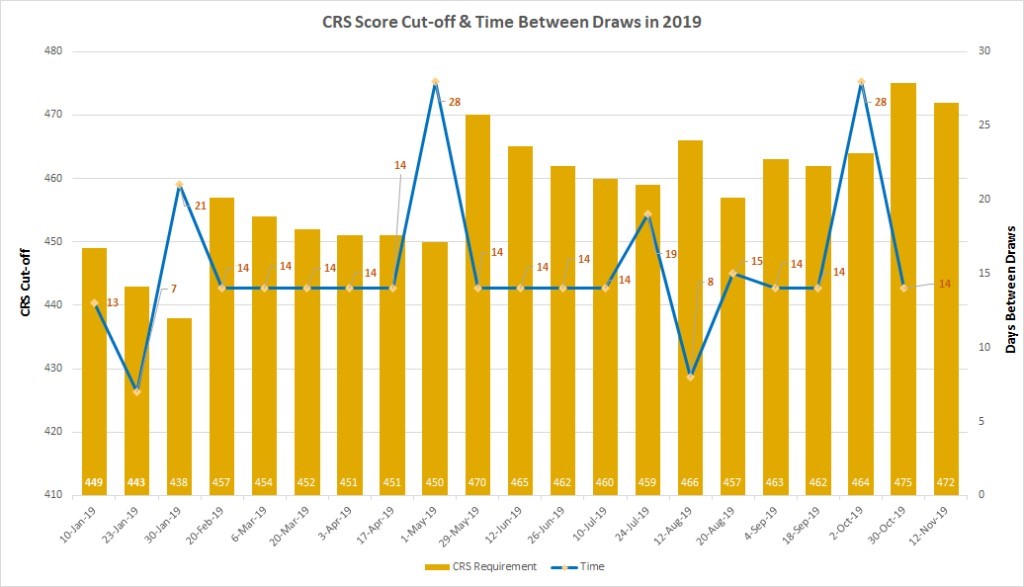It’s common knowledge that immigrants who are highly proficient in English and/or French have stronger odds of integrating into Canada’s labour force and society.
Canada’s immigration system reflects this reality with language proficiency standards for obtaining permanent residence and Canadian citizenship.
The Express Entry system is a case in point.
Throughout 2019, Express Entry candidates have needed a CRS of around 460 points to have a competitive shot at gaining an Invitation to Apply (ITA) for permanent residence. This means that language proficiency can constitute up to 63 per cent of the points required to qualify for permanent residence.
It is not a stretch to say that in addition to obtaining a provincial nomination (600 extra CRS points) or a job offer (50 or 200 extra CRS points), acing your language test is one of the best tickets into Canada under Express Entry.

More international students becoming immigrants due to strong language skills
Canada now has nearly 600,000 international students with surveys indicating half of them want to gain permanent residence.
Given that many international students arrive in Canada with at least a CLB 7 or achieve this standard after improving their language skills while studying in Canada, a significant share of them are in fact qualifying for immigration.
The federal government’s Express Entry report for 2018 showed that 25 per cent of the nearly 90,000 people who gained an ITA that year were former international students with a Canadian degree or diploma.
Federal government research shows language proficiency supports economic integration
Canada’s high language proficiency standards are rooted in evidence that highlights the importance of language skills to an immigrant’s integration into Canada’s workforce and economy.
A 2015 Statistics Canada report found that language skills upon gaining permanent residence were one of the best predictors of immigrant earnings in the short term. This means immigrants with greater language fluency—such as former international students—are more likely to earn a higher income in their early years in Canada than immigrants with weaker fluency.
Language proficiency opens many doors
A key takeaway for those with aspirations of moving to Canada is to keep working on improving their language skills.
While the greater emphasis on language skills may be discouraging for some, they can also use it as inspiration to work towards meeting Canada’s clear and objective language standards.




